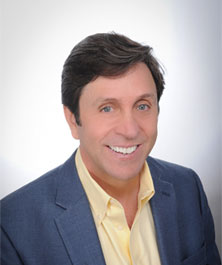
Can food choices influence the prevention and progression of cancer?
SHORT ANSWER: ABSOLUTELY YES. This is a deep and exhaustive cancer subject and has been a topic of debate for centuries. The so-called “Father of Modern Medicine” Hippocrates, born approximately 2,500 years ago, is well known for his famous quote:
Let Food Be Thy Medicine and Let Medicine Be Thy Food
His prescient understanding of how food impacts our health was remarkable, given the lack of analytical testing mechanisms (blood work and other medical-diagnostic tools) at his disposal. He was at the forefront of in-depth clinical observation and documentation. Today, an abundance of evidence strongly suggests that the inclusion of certain foods and the exclusion of other foods can have a major effect upon cancer. I will keep this article brief and expand upon it in future articles, but provide you, herein, with some “food for thought.”
Jeanne Wallace, Ph.D.
Jeanne wrote a compelling chapter in Hope Never Dies. She is a world-renowned specialist in the dietary and nutritional cancer world.
In speaking with Jeanne, I pointed out that there are many so-called anti-cancer diets, including the gluten-free, macrobiotic, Gerson, Ludwig, ketogenic, paleo, raw, vegan, vegetarian, and other diets. She takes a non-dogmatic approach:
“There are advantages and disadvantages to each of these diet approaches. While some of our clients might thrive on a vegetarian diet, others will be healthier eating some humanely raised, pasture-fed/finished meat. While a Gerson-type diet (organic plant-based) will provide ample phytonutrients for modifying gene expression, it can be disastrous to one’s blood sugar control.
Ditto macrobiotic approaches, which can be very healing for individuals whose genetic predisposition suits them to such an eating plan, but will worsen insulin resistance in others. A raw foods diet often works well as a short-term intervention to increase one’s connectedness to food vibrancy, but carotenoids and other flavonoids have low bioavailability in their raw state and are optimized when cooked and eaten with healthy fats.”
Jeanne and her staff engage in global translational research. They educate and counsel clients (and doctors) about evidence-based nutrition, which is tailored to patients based upon numerous factors. These factors comprise an individual’s biochemical criteria, including a client’s specific cancer type, stage and other related issues.
Jeanne also asserts:
A diet that fosters systemic inflammation, insulin resistance, excess blood viscosity, nutrient imbalances and immune suppression will have a permissive effect with malignant cells. So, contrarily, our primary goal is to lessen these factors and create an internal environment that is not conducive to cancer growth and progression. Most exciting is the discovery that our diet has direct effects on cancer genes.
We’ve learned that genes are more plastic than originally thought. Gene expression is not written in stone; we’re not stuck with the genetic luck-of-the-draw with which we’re born. While we can’t change the actual gene, we do have significant influence over which genes are expressed and which are kept dormant. Research in nutritional epigenetics is revealing how—at the molecular and genetic level—various anti-cancer foods repress the expression of oncogenes (genes that foster the growth and promotion of cancer) and up-regulate the expression of tumor suppressor genes.
Keith Block, M.D.
Dr. Keith Block is a world-renowned integrative cancer doctor. He has also written a compelling chapter in Hope Never Dies.
He states:
Regarding the impact of diet, it is clear that the typical Western diet can drive the onset of malignancy. For example, according to several studies, red meat can increase the risk of colorectal cancer by 25 to 75 percent. Also, high milk and calcium consumption are associated with a 15 to 200 percent increase in prostate cancer. And one randomized controlled trial showed that when breast cancer patients reduced their fat intake to 20 percent or lower, they reduced their risk of recurrence by an average of 24 percent! This is on par with Tamoxifen, which has shown a 25 percent reduction in recurrence rates after taking it for five years.
Another example: 25 grams of flax per day will cut your Ki67, a proliferation marker for cancer, by 34 percent. There is also evidence to suggest that 25 grams of flaxseed per day can induce apoptosis (the normal, genetically-regulated process of cell death) by 30 percent.
Yet, we don’t talk about nutrition specificity as medical culture. There is also impressive data showing that if you shift to a whole grain, legume-based, vegetable and fruit diet, you cut back cancer risks dramatically, yet there is less than a three percent chance that your cancer specialist will bring up a discussion about diet with you!
Keith treats his patients with a multi-interventional, systemic and comprehensive integrative regimen, based upon objective diagnostic criteria tailored to the individual, and not based upon the strict “standard of care,” alone.
What are the best foods to eat to avoid cancer?
I’m often asked for lists of what to eat and avoid. There is no perfect list of anti-cancer foods because everyone is an individual with different needs, but there are some common sense choices, based upon numerous research studies that certain foods and food categories should be avoided and, on the contrary, others included.
Anti-cancer food suggestions from Jeanne Wallace, Ph.D.
- Cruciferous vegetables (including broccoli, cabbage, cauliflower, kale, collards, brussel sprouts, radishes, and mustard)
- Carotenoid-rich fruits and vegetables (known for their deep orange, red and yellow hues)
- Leafy greens
- Berries
- Spices
- Green tea
Foods generally deemed deleterious to cancer prevention
- Refined, processed and packaged foods with excessive sugar
- GMOs and artificial ingredients
- Pesticide or hormone-laden factory-farm-raised meats/poultry/dairy/eggs
- Preserved meats and fish with nitrates
- Soft drinks and alcoholic beverages
- Refined vegetable oils
- Hydrogenated and trans fats
Intelligent food choices that are adhered to and implemented every day can play a major role in preventing cancer and impacting its progression.
Be aware of what you eat at every meal and understand that food or food products can have a direct effect on your body, especially if you have been diagnosed with cancer and are attempting to thwart its progression or keep it in remission.
Have a Wonderful Healthy Day and Keep the Hope!
Rick Shapiro, Author 
Hope Never Dies on Amazon



